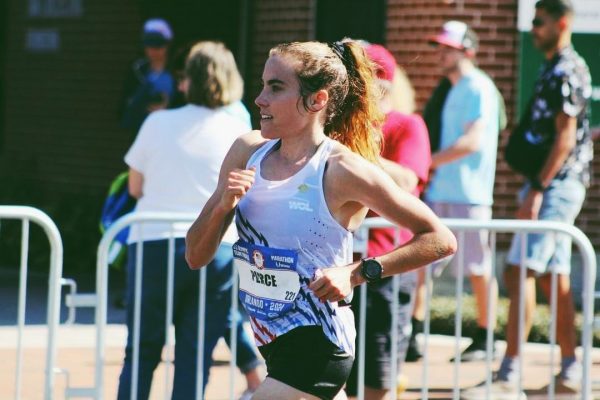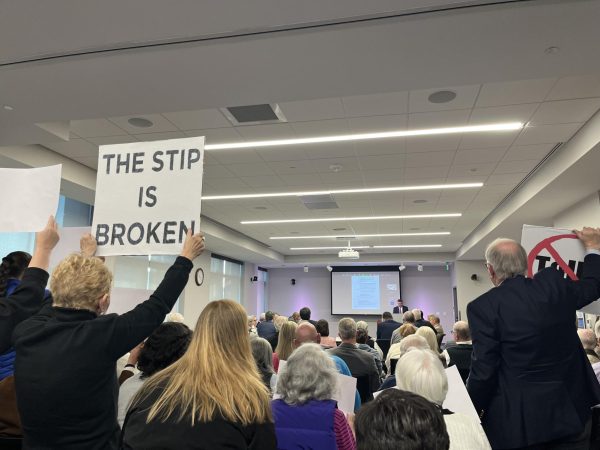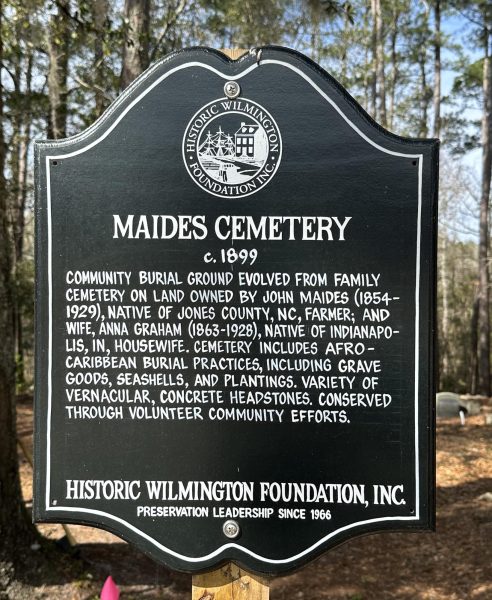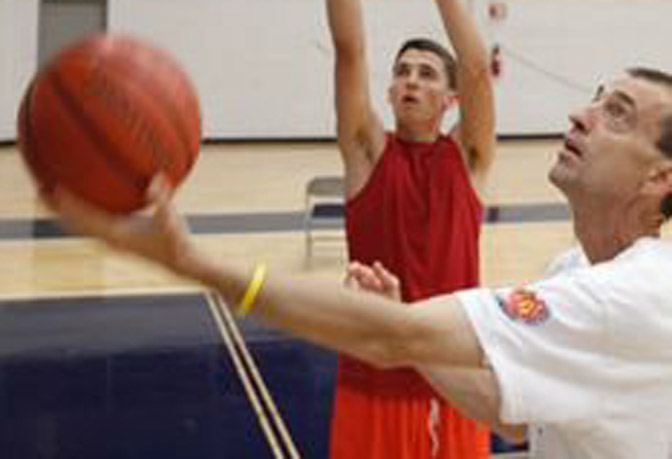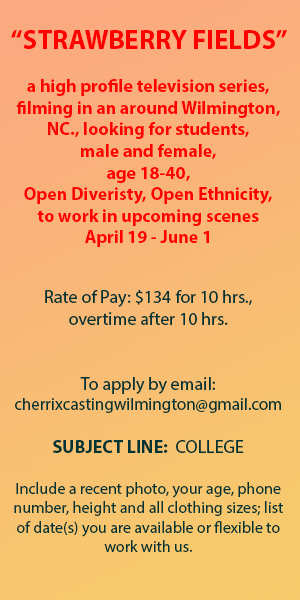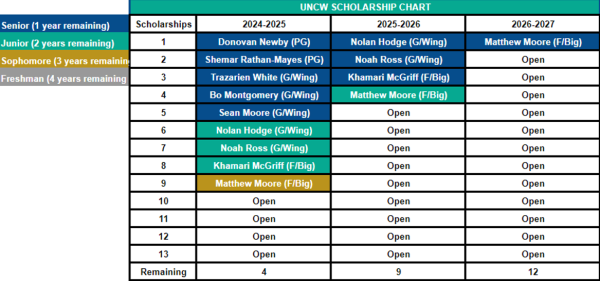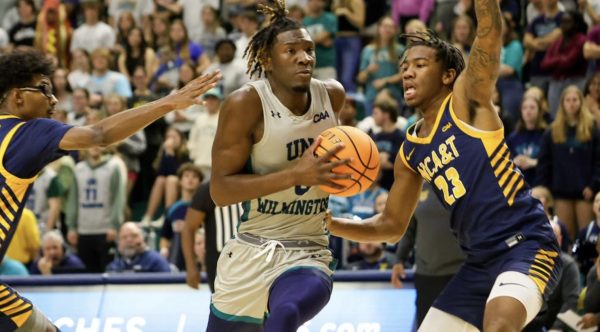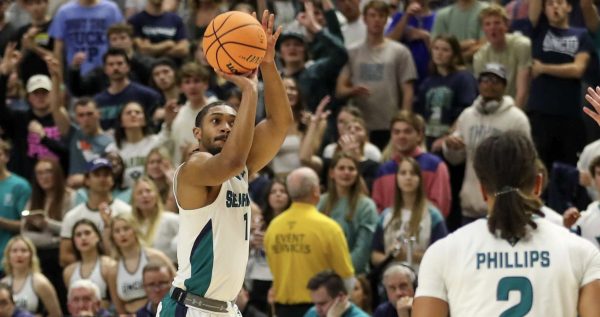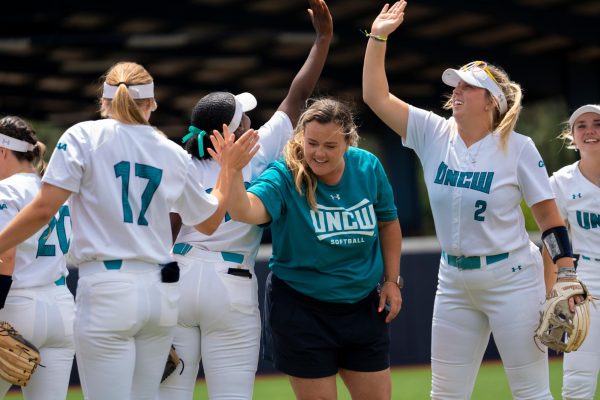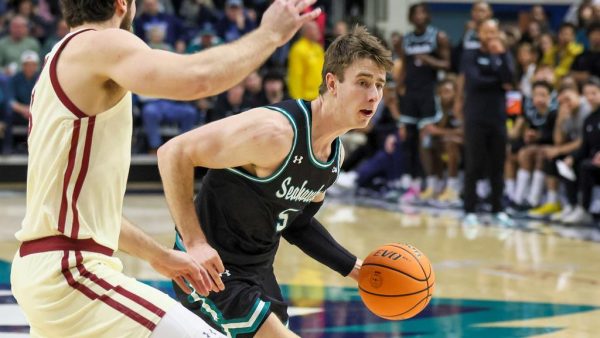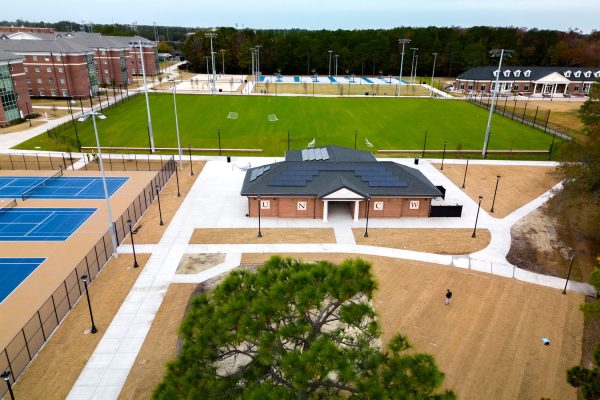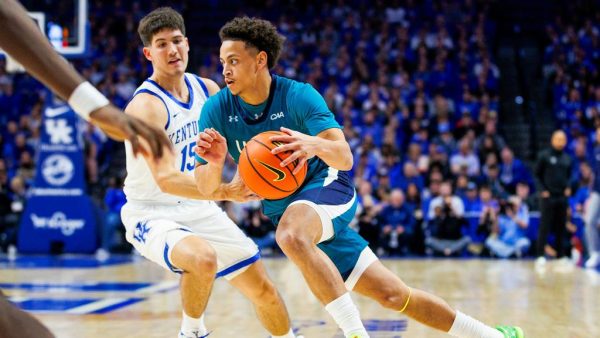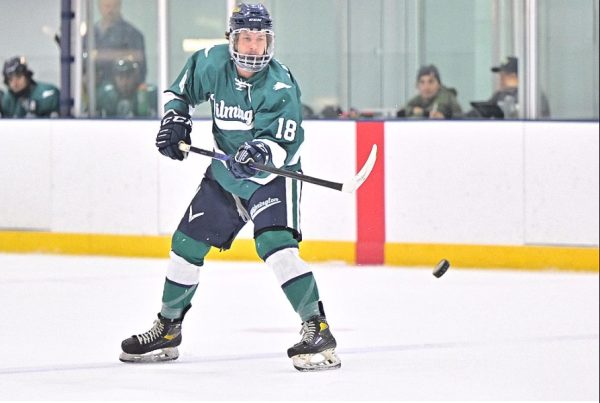Gone, but not forgotten
March 31, 2011
Tanner Milson thought he was in trouble. UNC Wilmington men’s basketball coach Buzz Peterson had just called the freshman guard out of the gym, prior to the start of team practice, Jan. 30.
“Coach called me out of the gym and I was like, ‘OK, what’s going on?’ Milson recalled. “He was like, ‘Come to my office for a little bit.
“He just kinda asked me if I had a feeling for what was going on. I was like, ‘Oh no, I hope I didn’t get in trouble with classes or anything else like that.'”
Milson wasn’t in trouble, but as the son of basketball coach, David Milson, he was familiar with situations when his father’s players were accused of wrongdoings.
“All that stuff was running through my head,” he said. “I was like, ‘My dad is gonna kill me.’ This is going to be bad.”
The news was worse than Milson imagined. Peterson told him to call Glenn Hartson, a former assistant of David Milson’s Cedar Hill High School boys’ basketball team in Texas and a family friend.
Hartson told him his father, at the age of 53, was found dead in the family home.
Despite being a non-smoker, David Milson had been diagnosed with adenocarcinoma, a form of lung cancer. “He told me that my mom had found him at the house,” Milson said. “It didn’t look like anything had happened, didn’t look like he was in distress of any sort because he had the phone right next to him, had his bowl of oatmeal ready to go and had the TV on a fishing show. Just ready to have a day of rest.”
In the office, Milson, Peterson, UNCW head of basketball operations Brooks Lee and team chaplain Dave Yearwood were devastated. “I just broke down and started crying,” Milson said. “They were all crying. It was definitely the hardest moment of my life.”
Peterson told him he needed to go home to be with his family. Milson missed the Feb. 2 game against Georgia State, but opted to return to Wilmington for the Feb. 5 game against William & Mary. The funeral was held that day at 9 a.m. The UNCW coaching staff booked Milson on a flight from Dallas to Charlotte, where team managers picked him up at the airport.
Milson said he made it back to Trask Coliseum with 48 minutes left until tipoff.
After the game, Peterson said he thought the “chances of Tanner getting back here on time were pretty slim, but God willing, we got him back here.
“I was on the board writing and he came in there with his cowboy boots on and everything,” Peterson said. “You could see it in his eyes, he was ready to go; he got dressed very quick.”
Milson was back because that’s what his father would have wanted him to do. While playing for his father in high school, Milson never missed a game and in 31 years of coaching, David Milson only missed two.
“He loved watching me play more than anything,” Milson said. “He loved watching me shoot the ball.” His father had flown in from Texas to attend eight UNCW home games.
David Milson always sat behind the Seahawk bench, about 10 rows up in the bleachers. He’d wear two pairs of sweatpants and a black, pull-over jacket. Slouched over with a hand on his chin, he’d silently critique his son. As his high school, AAU and youth league coach, he knew more about Tanner Milson’s game than anyone else.
When the 19-year-old would miss a shot or make a mistake, he’d frequently look up in the stands where his father would make gestures to point out what needed to be corrected. Milson said, “I loved it that way.”
A Magic Man
David Milson wanted to be friends with everyone. According to his son, he’d walk through the hallways of Cedar Hill High School, daring someone not to smile. If you were having a bad day, he’d do his best to fix that.
“That’s one of the things that I didn’t really notice until I got into high school and that’s why I think he touched so many people’s lives,” Milson said. “At school, he was always walking up and down the hall smiling, making jokes with kids, doing magic tricks… he was always doing magic tricks, doing whatever he could to talk to people.”
In the cafeteria, he’d find someone eating alone and talk to him or her the entire lunch. David Milson would make it a point to find that person again throughout the week—in the hallways, lunch room, outside or anywhere—and give him or her company.
“He was always thinking of other people,” Milson said. Then, David Milson would see a similar situation in someone else at school the next week and repeat the whole process.
“I feel like my dad touched enough people and is continuing to work in people’s lives,” Milson said. “He lived the way you’d want to live.
“He made a friend out of anybody. That was just who he was.”
‘Everything happens the way it’s supposed to happen’
David Milson had a history of health problems. “He had Hodgkin’s disease (lymphoma) when he was a junior in high school, so he had to have his left chest muscle removed and part of his lung,” Milson said as he pointed to his own left side.
For years, his father received numerous chest X-rays. David Milson was suffering from a nagging cough and shortness of breath shortly after he retired from his lengthy coaching tenure. The doctors saw small spots on both of his lungs. What was first thought to be scar tissue was later determined to be adenocarcinoma.
Milson wasn’t overly concerned, though. His father began chemotherapy and it seemed to be working. However, David Milson began to retain water in his ankles, arms and face. In the morning, he’d be “swollen,” according to his son, but by the end of the day, it would go away.
Adenocarcinoma has been blamed for his death, but Milson said it isn’t clear. “To this day, we don’t know what actually happened to him,” he said. “A lot of the doctors suggested that it could possibly be a blood clot getting loose from one of his arteries and going into his heart or into his lungs or something like that.
“It may not necessarily have been the cancer,” he continued. “It could have been the result of what was trying to cure the cancer, honestly…God has His plan and everything happens the way it’s supposed to happen.”
The last time
Tanner Milson talked to his father on his cell phone every night. He’d fill him in on school, personal life and, of course, talk basketball strategy.
David Milson retired from coaching at the end of his son’s senior year of high school. He vowed to watch more of his daughter Rylea’s basketball games at Midlothian High School and have the free time to travel to Wilmington to cheer on his Seahawk.
He managed both family allegiances. The weeklong, three-game home stand, Jan. 5-12, allowed David Milson an opportunity to watch UNCW play Georgia State, VCU and Delaware. More importantly, it was the last time they would ever be together.
Milson remembers vividly the final time the two embraced. His father was getting back in his car to drive to the airport after the last game and Milson told him, “All right, I’m just gonna ride my bike back to the room.”
With spring break approaching, he added, “‘I’ll see you in a few weeks; I’ll see you in about a month.’ He was like, ‘All right, I’ll see ya again.’ (He) gave me a big hug, just the usual.”
A helping hand
Basketball is a team sport. Sure, players can practice by themselves, but a diligent, private rebounder is any shooter’s best friend. As the Seahawks’ sharpshooter, Milson has undoubtedly launched thousands of shots of individual practice.
While David Milson was in Wilmington, Jan. 5-12, he did the usual. He gave his son advice of all sorts, especially basketball-related talks. And he rebounded for him.
Milson thought back to the last time his father was rebounding for him in the gym. “He was coaching me up,” he said. “He was like, ‘You used to do this in high school, why don’t you get back to catching it and jabbing, stepping back and shooting it’… so I kept that in mind.”
About a month later, Feb. 5 in his first game back after the funeral, Milson had not forgotten his father’s advice.
Four minutes and 34 seconds into the second half, Milson nailed a three pointer. He had caught the ball on the left wing, jabbed with his right foot, stepped back and gave UNCW its largest lead of the game so far.
When William & Mary rallied, Milson put the Seahawks back up by double digits with another triple with just under four minutes to play.
UNCW was well on its way to a CAA victory. The clock was winding down and the Tribe had been a friendly guest to Trask Coliseum, surrendering 89 points to the home team. The shot clock was shut off after William & Mary guard Brandon Britt missed a jump shot. Down by eight with about 20 seconds remaining, Milson heard Tribe coach Tony Shaver order his players not to foul.
UNCW senior Darryl Felder tracked down Britt’s missed shot. He passed to Milson. Shaver changed his mind—he yelled for his players to foul immediately. A gesture of sportsmanship gave an 81% free throw shooter an opportunity to have all the attention fixated on him.
Milson found it hard to believe that Shaver gave him free shots to end the game. “I heard him say no foul, so I saw two guys coming at me, so (my teammates) gave me a hard time after the game because I was dribbling around trying not to get fouled,” Milson said. “Being as slow as I am, I’m sure it looked really goofy. I’m sure (Shaver) was pulling for me.”
He made both free throw attempts, calmly looking toward the rafters and pointing to the sky after the second one found the bottom of the net.
“If I missed a free throw, I would look (in the stands) and (my dad) would tell me something that I needed to fix,” Milson said. “At the end of that game, I made two free throws and that’s when I thought about him.”
Shaver and Peterson repeatedly praised the efforts of the player who didn’t finish with the most points, but perhaps showed the most courage.
“It breaks my heart for Tanner,” Shaver said. “I can’t imagine what the young guy is going through, I really can’t. As a parent of three sons, I think one of two things: they’re just going to be devastated emotionally or they’re going to be on an emotional high. He was terrific tonight. I don’t know how he’s dealing with what he is.”
Peterson was just as incredulous. “For a young man to go through what he’s been through today, boy I tell you what, I never want to have to go through anything like that,” Peterson said.
“What a mature young man,” he added. “He loves being here at this school because the students, the faculty and the people around here have been so gracious, so courteous to him. It makes him feel like he has a family here in Wilmington.”
How does Milson think he played that night? “I’d say I had an average game,” he said. “But I hit two big threes.”
His father wouldn’t cut him much slack either, according to Milson. “He would say that I made big plays at the end of the game,” he said. “He would say that I didn’t play any defense, though.”
There were 3,940 people in attendance. Milson would argue that there was actually 3,941, an extra special someone lending him a physical and emotional helping hand.
“The whole time I thought my dad was there with me in the stands. I kept looking over to where he usually sits,” Milson said. “Right behind the bench, about 10 rows up on the left side.”
Just one more
David Milson left behind his wife, son and daughter. But that absence is only physical. “I know he’s always watching over me,” Milson said. “I think about him a lot. I think about what he would do in a lot of situations, I guess that’s kind of how he’s still with me.”
David Milson was always teaching his son. Even after his death, Tanner Milson is still learning from him.
“I’ve gained a better sense of who he was and in that, I see who I want to be a little bit more,” he said. “It gave me a little shot of reality to me, I guess, of just how fragile life is.”
As is every personal loss, the survivors wish they could have just one more conversation, just one more embrace and just one more glimpse.
“I would just tell him that I loved him, that Rylea is still the same girl,” Milson said. “I’m going to keep working hard every day. I’m gonna try to be friends with everyone and make everyone smile the way he did.”
As Peterson noted, a high level of maturity can be found in the freshman. “It would be selfish for me to say that I want my dad back,” Milson said. “I mean as much I do, I want him back, I want him here with me right now; it’d save me, my mom, my sister a lot of grief. But, now he’s not suffering, not having to worry about being stressed out, not having to worry about not catching any fish when he goes fishing.
“Everything is perfect for him now. It’s really like he’s gone on a long vacation. For 19 years, he equipped me with what I needed to know. If that’s right with God, that’s right with me.”







